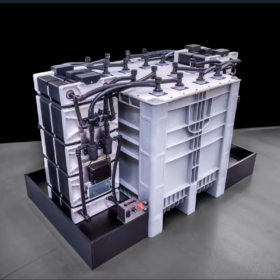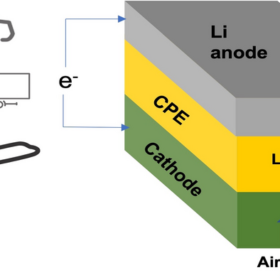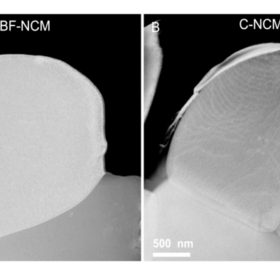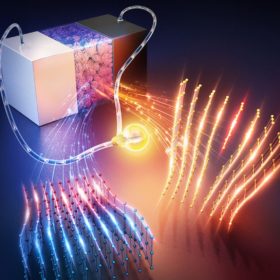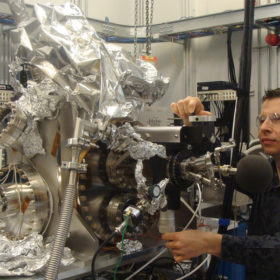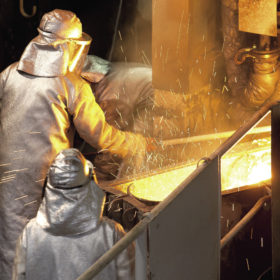CMBlu Energy’s organic flow batteries to be tested in microgrids, cold climates
The US Department of Energy’s (DoE) Argonne National Laboratory and Idaho National Laboratory will carry out demonstration projects to validate long-duration energy storage tech developed by German manufacturer CMBlu Energy. The collaborative project is designed to improve microgrids in cold climates and make fast charging of electric vehicles more affordable in underserved communities.
Lithium-air battery with solid electrolyte
US researchers have developed a new lithium-air battery with solid electrolyte and the potential to reach a record energy density that is nearly four times that of lithium-ion batteries. The test cell demonstrated stability over 1,000 charge and discharge cycles.
The mobility rEVolution: High-voltage battery cathode for longer driving ranges
Shell has revealed it will use Driivz’s EV charging platform in Europe, and Nissan said it will offer bidirectional charging in the US market. Schneider Electric, meanwhile, has unveiled a new EV charger.
Fast charging for lithium-ion batteries needs a fix
Scientists in the United States placed fast charging for lithium-ion batteries under the microscope, finding that charging at higher rates can quickly damage the structure of a graphite anode, causing capacity loss even after a small number of cycles. By identifying the mechanisms causing this performance loss, the group can help point future research in the right direction.
Narrowing down a million molecules for the optimal flow battery
Scientists in the United States turned to artificial intelligence to speed up their search for new materials for use in a flow battery. The group developed a machine learning algorithm that could search a dataset of potential materials and identify those with the ideal balance of different characteristics that make it suitable for use in a flow batteries. The group says its algorithm could be applied to other battery technologies, and even in other fields.
Exploring defects in a solid-state electrolyte
Scientists in the U.S. used sophisticated imaging techniques to observe previously unknown defects in the crystalline structure of a solid-state electrolyte. The scientists theorize that these defects could play an important role in the electrolyte’s performance, and that designing them more carefully into the material could have impressive results.
Understanding perovskite degradation
Scientists in the US took a closer look at the mechanisms causing perovskites to degrade under light and raised temperatures. By testing perovskite cells with various additives and other recipe tweaks, the group was able to identify pathways to improving long-term stability.
The issues with lithium-ion battery recycling – and how to fix them
Design-for-recycling is not perceived to be high up the list of priorities for battery manufacturers but solutions do exist. Lithium-ion device recycling is technically feasible but requires an improvement in its business case to take off.
Looking to phosphorous for next-gen batteries
Scientists in the United States have fabricated a working lithium-ion battery using a phosphorous-based anode. The batteries show significantly higher capacity than today’s lithium-ion tech, and could serve as a guideline for future design of high-performance anodes for Li-ion batteries.
Rooftop solar window based on semi-transparent perovskite solar cells
A prototype of an energy-harvesting, solar-powered smart window device has been developed by scientists from the U.S. Department of Energy’s Argonne National Laboratory. The window was created by integrating a semi-transparent perovskite solar cell and a multi-layer nanophotonic coating.
